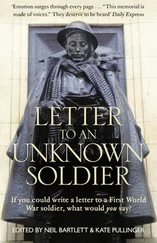“I’m sorry, I should have shown you the bathroom. It’s upstairs. You’ll want to take a shower or have a bath. And I’ve saved you some supper.”
“Food first, bath later, please, Mrs. Harriet.”
“Just Harriet is fine,” she replied.
While Yacub ate, she went upstairs and ran the bath. She called out to Jack, “I’m having a bath,” but the volume of his music did not go up or down. Once Yacub finished eating and was in the bath, she knocked on Jack’s door and went in. He turned the volume down and looked at her.
“Do you have any clothes that are too small? I’m doing a big sort-through.”
“I thought you were in the bath.”
She could feel she was blushing. “I ran it, but then I thought I’d do this first.”
Without a word of objection, Jack disentangled himself from his wires and leads and cables and went over to his chest of drawers. He got out a pair of track-suit bottoms and two T-shirts. “These are too small. Most of my clothes are too small,” he said.
The unmistakable sound of someone readjusting their position in the bathtub— brraap, slosh —came through the wall. Jack and Harriet stared at each other. Harriet held her breath. But then Jack made his way back to his bed and his computer, his sound system and his phone, as though he hadn’t heard a thing.
She took the clothes into her room, added a sweater of her own, wrote a note for Yacub, pushed the note under the bathroom door and left the clothes outside the door in a bag.
Yacub was planning to leave that night. He’d decided to make his own way in London; he didn’t need any more help from this woman with her wide face and her ready smile and her son who was both gigantic and babyish. He wanted to get out of their house and find work and make his way, like he did in Karachi, like he did in Dubai. He’d earn enough money to fly to America, this time inside the cabin of a plane.
But the bath was his downfall. It was the biggest, most wonderful bath he had ever been in. Actually, it was the only bath he had ever been in. When he first climbed into it, he was astonished. Warm water, up to his shoulders. Bubbles that smelled of perfume. The smooth surface to lie back against. The cool air on his face. The solitude. The peace.
The bath melted his resolve. Everything was white in the room—white walls, white tiles, white-painted floorboards, white toilet, big white chair, white blind on the large window, a separate glass-walled shower in the corner, everything lined up, square, no cracks, no holes, no rats, no insects, no escaping sewage—it was like a bathroom in a magazine, an American bathroom in an American magazine. Harriet had put out two thick white towels, a white bar of soap and a new toothbrush. The toothbrush was green.
And it was in that bath, in the extreme comfort of that bath, that Yacub realized his body hurt all over. He was still cold, still frozen deep in his core. He could do with another night of rest in that clean, soft bed.
He would leave the house tomorrow.
Michael came home from work late and left for work early every day; the bed he shared with Harriet was so wide and firm that no end of people could have come and gone, leaving Harriet’s sleep unbroken. Besides, she was tired. When Jack became a teenager, his newfound passion for late nights had the opposite effect on her, rendering her unable to stay awake past ten o’clock.
Harriet tried to stay up. She missed her husband, as though he’d been away at sea for a long time and she had no idea when he’d return. And yet most nights, if she was awake when he came into the bedroom, she pretended to be asleep. Two years was a long time to go without talking. Who knew where “Hello, how are you?” might lead?
They weren’t “not talking” in the cold-shouldered sense. They could sit at a dinner table together and converse about Jack, Michael’s work, the news, the weather.
Of course, when the “events” happened, Michael had asked her about George Sigo, and she had lied. But had she? No, she just hadn’t told him the whole truth. She resigned from her job, emailing an apology to Mallory. She didn’t see how she could continue to work after what had happened; she thought that every time she appeared on television or radio, that scene—Harriet in her suit in front of the candidates, the mayor of Tipton Mallet behind her on the stage, George pushing her into Frankenstein—would replay in the mind of the audience, and that no one would ever again hear what she was trying to report. The “events” allowed Michael to stand by his wife, steadfast. They had allowed them both to push away what had happened in Toronto.
They had survived. And then Yacub arrived: at last something new was happening to Harriet’s family.
It wasn’t much of a family. Two parents, one child—well short of the 2.4 required for the next generation to thrive.
Once Yacub was out of the bath and safely back in his room, Harriet found herself unable to sit still and so began to clean shelves, sort towels, throw out old food. When Jack was younger and Harriet worked, she had done none of these things: the cleaner sorted, the nanny cooked. Now, to keep herself company while she pottered in the kitchen, she went online and found a Pakistani cookery show, with a flamboyant male chef in a hot-pink shirt, speaking a weird mix of what she took to be Urdu and English, busy making some kind of sugary rice pudding. Harriet wondered if she should try to make it.
After the kitchen was tidy, the floor swept and washed, the rubbish taken out, she headed off to bed. Yacub was in the little room, and even Jack seemed to have had an early night. She turned out the light on her bedside table and lay in the dark, illuminated by the cold, clean light of her tablet. She went on Facebook, logging on under her other identity, Crazeeharree, going straight to Emily’s page. New pictures. Harriet sighed with satisfaction.
After a while, she pressed a button and the tablet fell dark and the room was dark as well. Harriet lay back on her pillow and listened to the house. The digital clock read 00:15; Michael was later than usual.
She dozed. Tomorrow she’d take Yacub shopping and buy him clothes. Did he need more clothes? All he possessed were the filthy and tattered clothes on his back, and the hand-me-downs from Jack. If he was dead, that was one thing, but if he was alive, he would need proper clothes. They’d go over to the giant mall in Shepherd’s Bush and she’d take him to the men’s shops—or maybe she should give him the money and let him shop for himself—oh lord, she thought, complicated. Maybe she’d hand him the money and he’d disappear in the crowd and that would be it. The car would come back from the garage and the little room out back would once again fill up with stuff they didn’t need. It would be as though Yacub had never existed.
Harriet slept, until she was woken by the sound of Michael entering the room. She listened as he took off his clothes, placing everything carefully on the sofa by the window, sitting down on the bed to remove his shoes. He took off his cufflinks and they clinked as he put them on the bedside table. He climbed into bed and took a deep breath. These were sounds that Harriet had heard thousands of times, but tonight she heard them afresh. He was being as quiet as he could possibly be. He was a considerate man.
Then he did the unexpected: he began to move toward her. He knew she was awake. He glided across the expanse of their bed like a swimmer moving toward the shore. She had her back to him, and he slid his hand over her hip and pulled her close. She could smell the soap that he had washed with and the toothpaste he had used, and behind that the alcohol he had consumed that evening. He was tangy with the office and train on him still. They hadn’t had sex since he’d been to Toronto. He put his hand on her hip, and he moved ever closer. He was kissing her neck and her back, pressing himself against her.
Читать дальше












